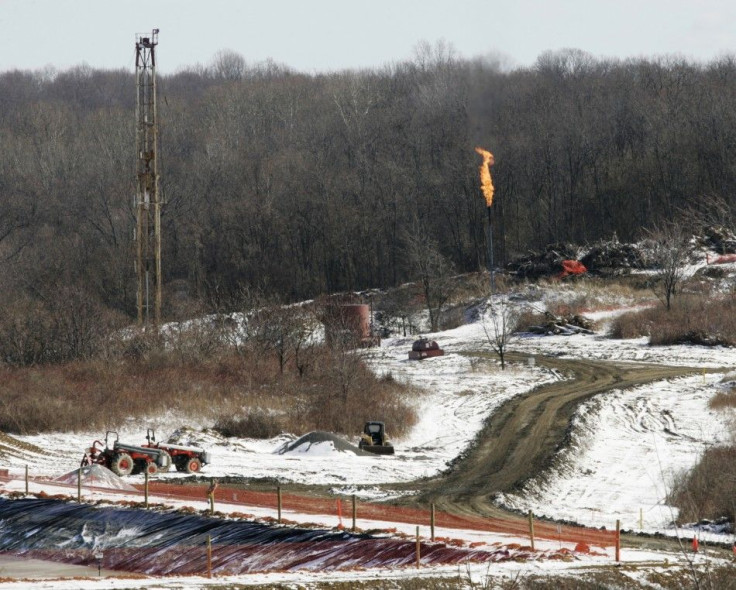Michigan Legislators Debate Adding New Rules For Fracking

The debate surrounding natural gas drilling is moving to Michigan, as House Democrats there discuss a new bill Wednesday that adds additional regulation to the state's rules on hydraulic fracturing.
Introduced on Tuesday, Michigan's HB 5565 touches on the chemicals used for hydraulic fracturing, or fracking. It would require natural gas companies to reveal the types of chemicals and the volumes used before the state could approve a permit for fracking.
The bill would also authorize companies to provide heath officials in the state with information on the chemicals used in a fracking operation, when needed to help diagnose patients.
The bill is being discussed shortly after the release of a subcommittee report saying the state's natural gas industry is poised for incredible growth.
The report also urged state legislators in the state to reduce permit application and per-acre storage fees so that Michigan could take full advantage of shale drilling.
The drilling technique is clouded in controversy. Requiring millions of gallons of water, sand and drilling chemicals to extract natural gas from fractured underground rock formations, there are fears the drilling technique is hazardous to underground water tables.
The U.S. Environmental Protection Agency is investigating claims that fracking contained ground water in Pennsylvania and Wyoming. So far, it has found no evidence that fracking itself contaminated water supplies.
Michigan sits atop a basin with an estimated 11 trillion cubic feet of natural gas according to the U.S. Geological Survey. But the Associated Press reported the energy rush in other states like Ohio and Pennsylvania has not yet reached Michigan, as few wells have been dug in the state.
Hydraulic fracturing, however, has long been established in the state. Since the 1950s, 12,000 natural gas wells have been fracked across the state, said Brad Wurfel, a spokesman for the Michigan Department of Environmental Quality.
Since then we've never had any adverse environmental impacts, Wurfel said.
© Copyright IBTimes 2024. All rights reserved.











